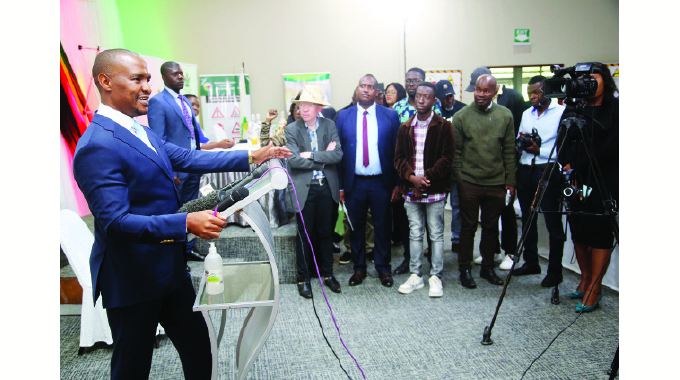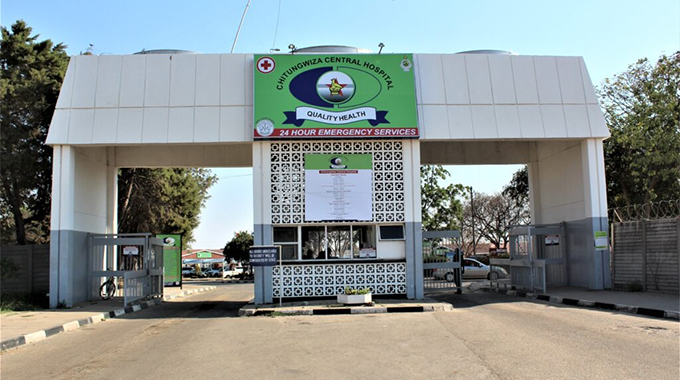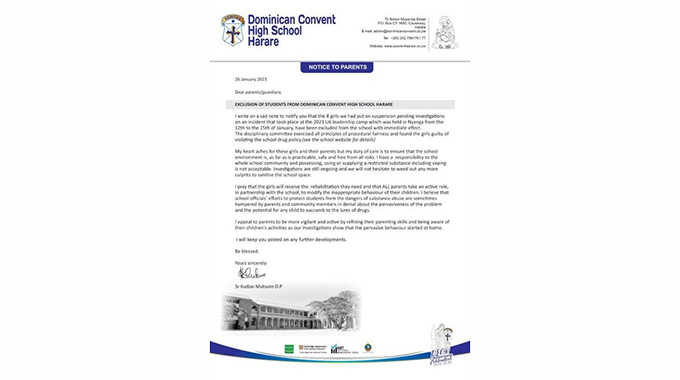Govt engages stakeholders over fatal road accidents

Freeman Razemba-Crime Reporter
At least 2 064 people were killed in road accidents last year and the Government has since engaged all stakeholders to discuss the nature and extent of the traffic safety problems that are being faced in the country with a view to formulating initiatives to sustainably stem the scourge.
According to police statistics, last year alone, the average number of road accidents per month was 4 259 with an average number of 172 people killed per month.
The Government and the Traffic Safety Council of Zimbabwe (TSCZ) are currently conducting a two-day National Road Safety Indaba as they tirelessly endeavour to formulate robust legal, policy and administrative mechanisms to transform and revolutionise the road traffic safety management regime of our motherland.
Speaking at the indaba, Transport and Infrastructural Development Minister Felix Mhona yesterday said the event provides an opportune platform to reaffirm smart, public and private partnerships for sustainable road traffic safety programming.
“Road traffic crashes we have witnessed in the last few months have clearly indicated we need to take action in the very first month of the new year and engage all stakeholders in a discussion on the nature and extent of the traffic safety problems that we face as a Nation, with the view to formulate initiatives to sustainably stem the scourge.
“Available statistics from the Zimbabwe Republic Police indicate that in the year 2022, the average number of crashes per month was 4 259 and the average number of people dying as a result of road crashes was at 172 per month. The fore-going disturbing statistics translate to the fact that in the year 2022, some 2 064 people lost their lives due to road crashes. This is a tragedy that could have been avoided. We must work harder to reverse the tide and preserve human lives on our roads.
“Further to the above frightening statistics, this Indaba has come at a time when we have undertaken the Zimbabwe Road Safety Performance Review, which produced a Report that was launched by His Excellency, the President of the Republic of Zimbabwe, Cde, Dr E.D. Mnangagwa on 12 January 2022,” he said.
Minister Mhona said according to the report, in Zimbabwe, a traffic crash occurs every 15 minutes, over 35 000 crashes occur annually, an average of at least five people are killed every day, over 1 800 people killed every year and over 10 000 people injured annually.
He said the review was carried out to assist Zimbabwe’s road safety management capacities and to improve the national road safety record.
“On that note, we pay special tribute to the United Nations Office of the Special Envoy on Road Safety, Mr. Jean Todt, for their unwavering support throughout the review process.
“It is however crucial for all of us to be informed that while a driver’s license brings new freedom and independence –it also calls for solemn responsibility. Everyone- on or near the road — from the driver or cyclist next to you, to the person walking on the sidewalk — is counting on you to pay attention to your driving. You must always be prepared for the possibility that you will need to stop, swerve, speed up or slow down to avoid a collision. That means you need to have your full attention on the road and always be fit to drive with due care.
“Your life, your passengers’ lives and the lives of other motorists, cyclists and pedestrians depend on your ability to drive safely. If you are impaired by drugs or alcohol, or if you’re texting or paying attention to anything other than your driving, you are putting lives of hundreds at risk,” Minister Mhona said.
He said as they begin to implement the recommendations around the main pillars of road safety management, they will galvanise their national road safety management system through updating the regulatory framework to include international and regional recommendations.
He said they were in the process of acceding to the UN Road Safety Conventions which they were not yet party to.
“My Ministry has identified five road safety Conventions we will soon be placing before Parliament for accession, which are as follows: the 1957 Agreement Concerning the International Carriage of Dangerous Good (ADR); The 1958 Agreement concerning the Adoption of Uniform Technical Prescriptions for Wheeled Vehicles, Equipment and Parts which can be fitted and/or be Used on Wheeled Vehicles and the Conditions for Reciprocal Recognition of Approvals Granted on the Basis of these Prescriptions.
“The 1968 Convention on Road Signs and Signals, the 1997 Agreement concerning the Adoption of Uniform Conditions FOR Periodical Inspection of Wheeled Vehicles and the 1998 Agreement concerning the Establishing of Global Technical Regulations for Wheeled Vehicles, Equipment and Parts which can be fitted and/or be Used on Wheeled Vehicles,” Minister Mhona said.
He said it envisages that by 2025, Zimbabwe should achieve high quality and efficient public transport service, leveraged by a safer, efficient, affordable, accessible and smart multi-modal transportation system, covering both the rural and urban areas, with a view to reduce road accidents and fatalities by a 25 percent margin per annum.
He said the purpose of the indaba was, among others, to track and monitor progress in our efforts to reduce road crashes by addressing the gaps identified in key road safety laws, infrastructure, vehicle standards and access to post-crash care.
The Indaba will also guide their efforts in making roads safer during this year going forward.
“Significant progress made during the previous year in the Emergency Roads Rehabilitation Programme has laid the foundation for accelerated action to complement safety vehicles, appropriate drivers’ attitudes with good infrastructure.
“These efforts, towards building our road networks, provide an opportunity for each and every one of us to be accountable for the actions we take on the road, especially the owners, operators and those who are responsible for drivers and conductors who ferry the largest population of our citizens on a daily basis,” Minister Mhona said.
He said the ultimate goal of this National Road Safety Indaba was to reduce carnage, traffic fatalities and serious injuries on their roads.
“In most cases, the deaths and injuries associated with road traffic crashes are attributable to drivers. This obviously is a major concern, but on the other hand, gives hope that as a country we can in fact reduce carnage on our roads if only the drivers can change their attitude and behave responsibly behind the steering wheel.
“Indeed, mitigation can also be achieved through proper driver education and employment of safe driving practices.
“These practices include driving within the speed limit; refraining from the use of mobile phones while driving, refraining from street racing, and overtaking in driving situations where it is unsafe to do so. I, therefore, urge drivers to have the preservation of human life at heart every time they switch on their engines,” he said.
On the legislative front, Minister Mhona said they had found it necessary to review a plethora of legislation governing the road safety sector, the main focus being to provide for the digitisation and deployment of IT in the sector to improve their enforcement capacity as a country, while at the same time recommending fines which they believe will be deterrent to would be offenders.
He said also taking note of the challenges that families of victims and survivors of road traffic accidents face, the Government is in the final stages of operationalisation of the Road Accident Fund.







Comments